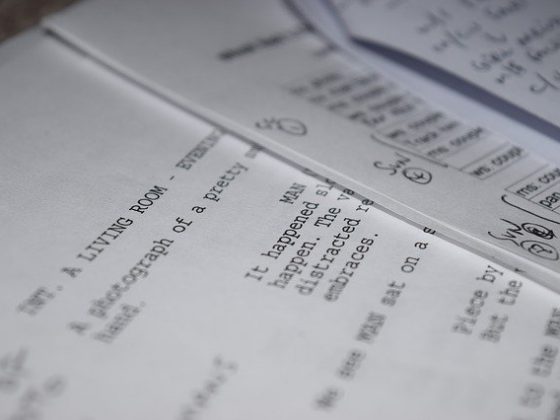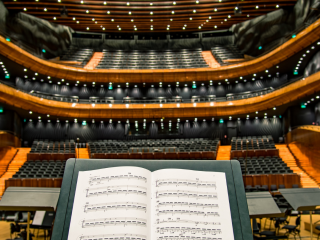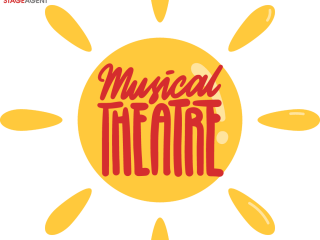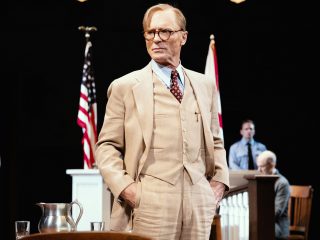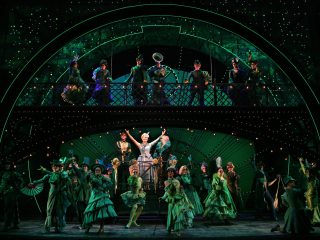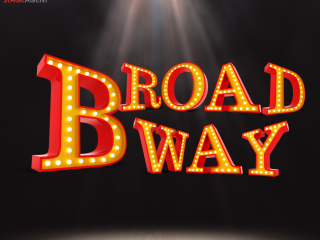From groundbreaking shows to Broadway shutdowns, theatre history is jam-packed with colorful moments that helped define it. With theatre awards season now behind us, let’s look back at some iconic moments that shaped theatre history.
What A Beautiful Mornin’
On March 31, 1943, the dynamic duo of Richard Rodgers and Oscar Hammerstein changed musical theatre forever when Oklahoma! opened on Broadway. Set in Claremore, Indian Territory in 1906, the musical tells the story of Laurey Williams and her rival suitors: cowboy Curly McLain and farmhand Jud Fry. Oklahoma! introduced the “book musical”-fully integrating the songs and dances into a constructed plot and using musical motifs to connect the music and the story. At a time when musicals were almost purely for entertainment, Oklahoma! re-defined the very concept of musical theatre and became the new model for Broadway shows. Writer Thomas Hischak cited it as “the single most influential work in the American musical theatre”.
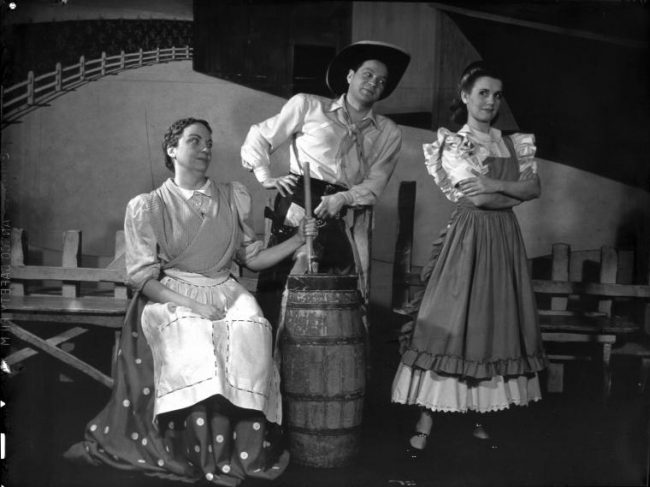
[NYPL Digital Collections, PD-US]
Milestone Musicals
Every so often, a show becomes a cultural landmark. One of the best examples in living memory is Jonathan Larson’s Rent, which burst onto Broadway in 1996. The gritty rock musical about a group of young Bohemians in 1990’s New York City was an instant smash. Larson’s sudden death the day before the show opened added to its mythic status. The show attracted legions of fanatics, who called themselves “Rent-heads” and camped out in front of the Nederlander Theater for discounted rush tickets. The song “Seasons of Love” has become a successful pop song in its own right, and the show continues to play sold-out performances worldwide.
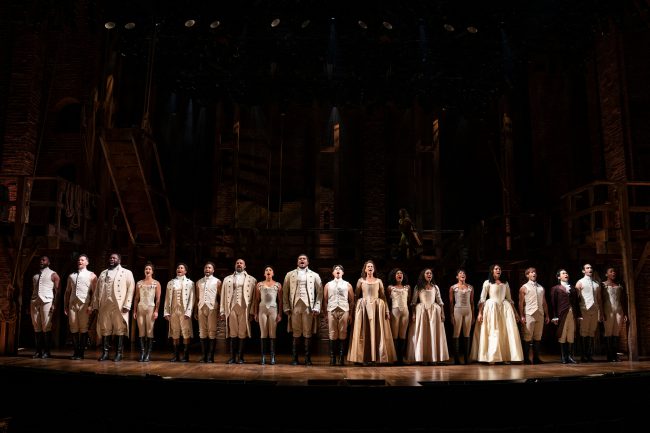
Almost 20 years later, Lin-Manuel Miranda’s Hamilton, a rap musical about the life of Alexander Hamilton, also became a cultural phenomenon. The show got glowing reviews for its lyricism, musical style, and storytelling. It was also groundbreaking for casting non-white actors as America’s Founding Fathers. Even people who weren’t “theatre people” had a hard time not hearing about it. Part of the show’s mythos was how monumentally hard it was to get tickets, at least without forking over a lot of money. The quest for a coveted spot in a Hamilton audience was the subject of articles like “I Paid $2,500 for a Hamilton Ticket” in the New York Times and a (somewhat) tongue-in-cheek article by the Washington Post’s Veronica Toney, who described the lifestyle changes she made to afford a ticket and all the things she could have bought instead (the list included a flight to Europe, an Apple Watch, and a dog).
Disney Wins Big on Broadway
In 1994, Disney ventured into Broadway with a stage version of Beauty and the Beast. The show’s success proved that Broadway was a viable market for Disney properties. In 1997, The Lion King roared onto Broadway and became an instant hit. It won six Tony Awards, including Best Musical in what many considered an upset (Ragtime, a more traditional musical, was favored to win that year.) Director Julie Taymor became the first woman to win a Tony for Best Direction of a Musical. Lauded for its visual spectacle, including elaborate costumes and puppetry, The Lion King is now the highest-grossing Broadway show ever and the third longest-running show in history. The success of The Lion King catapulted Disney into Broadway and paved the way for successful productions of other Disney titles like Aladdin, Mary Poppins, and Newsies.
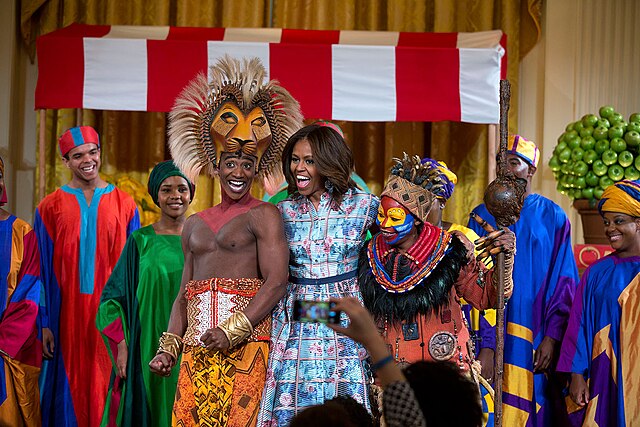
[Photo credit: The White House, PD-US]
Spider-Man Spells Trouble
A rock musical about Spider-Man may have sounded like a good idea in theory, but 2010’s Spider-Man: Turn Off the Dark did not deliver. The show became notorious even before it opened when several actors were injured performing its highly technical acrobatic stunts and aerial fight sequences. When preview performances finally began after several long delays, the reviews were, to put it mildly, not kind (the fact that critics published reviews during a show’s preview period was unusual itself.) Ben Brantley of The New York Times ranked the show “among the worst”. A re-tooled version fared only slightly better, with Brantley describing it as an “ascent from jaw-dropping badness to mere mediocrity”. Ouch. Spider-Man officially closed in early 2014, having incurred a massive financial loss.
Shutdown
Live theatre was one of the first industries forced to shut its doors during the COVID-19 pandemic. On March 12, 2020, Broadway theatres went dark, shutting down all 31 shows. At first, theatres planned to reopen after 32 days. The shutdown lasted a year and a half, the longest in Broadway history. Thousands of actors, designers, musicians, and theatre staff were out of work. Some shows, like Frozen and Mean Girls were forced to close permanently. The shutdown wasn’t limited to Broadway; regional theatres and community theatres across the country halted productions indefinitely.
A few days after Broadway went dark, London’s West End followed, leaving more than 290,000 people out of work. The Society of London Theatre, which represents West End theatre owners and producers, asked audiences to consider donating the cost of their tickets as a way of supporting theatres that were left financially strapped. West End theatres reopened with social distancing and limited audiences in mid-May 2021. In July 2021, theatres were allowed to return to full capacity. Broadway followed in September 2021 with the return of some shows, including Hadestown, Aladdin, Chicago, and Come From Away. The return of live theatre was seen as a major milestone in the economic and emotional recovery from the pandemic. One of the most important moments in theatre history and integral to its future. Broadway productions shared videos of their re-opening performances to celebrate the occasion, like this one from Wicked’s first show back.
For better or worse, part of what makes theatre history so fascinating is the iconic moments that shaped it. What are your most memorable theatre moments?


